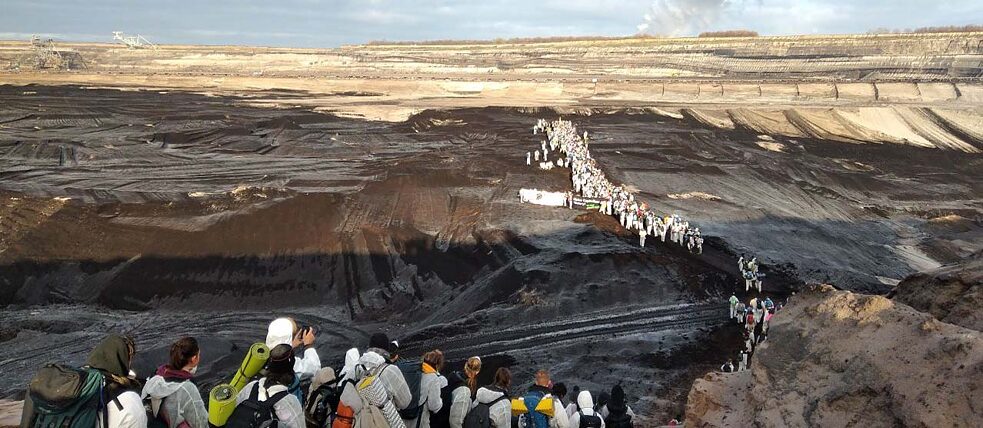Justice in the Climate Movement
The Problem with Green Capitalism

Green Capitalism is often portrayed as an easy and comfortable solution for the climate crisis, enabling us to not needing to change the way we live that much. But is that true? Can we really resolve the climate crisis within a capitalist system?
By Asuka Kähler
As Lola showed last week, the “Green Deal” of the EU couldn’t keep its promise. But what does green or natural capitalism mean anyways? It’s a form of environmentalism that aims at reflecting the “value” of ecosystems and biodiversity in the market – so that the participants care about the environment and act sustainably. The value is supposed to be assured market-based policy instruments by the government, such as carbon taxes or a system of carbon-trading.
Is such a concept even viable?
Some aspects of this theory are useful, and may even be a temporary solution to at least slow down climate change. But it is missing out on other aspects: no matter how efficient we use our natural resources; there is only a limited amount of them. Infinite growth is’nt possible. We can slow down our use of resources, but hoping for innovation to solve all our problems might be somewhat naive. As long as we follow the paradigm of economic growth, we will neither create a sustainable nor an equitable system.Why doesn’t it align with climate justice?
Capitalism, in its general conception, leads to injustice and exploitation, both of human and natural resources. A greening of capitalism, leaving aside the notion of its viability for a moment, won’t abolish neo-colonial structures, which have evolved in the aftermaths of colonialism and majorly structure our geopolitical landscape nowadays, making the states of the Global North its main profiteers. Human rights might still be ignored for the economy’s sake. Climate justice means to fight for the future of all of humanity, not only for that of the privileged.This is not possible in a capitalist system, as claimed by many activists in the climate movement.
What can we do as activists?
We need to take matters in our own hands and actively try to change society. This can be done in various manners. In Germany, the group “Ende Gelände”, that started their activism with occupying coal mines, embodies one of them. By now, they speak out not only for climate justice and solidarity but against exploitation and racism, as well. They are especially known for their mass acts of civil disobedience and their anti-capitalist perspectives, which affect their activism in every way. “We don’t fight against individuals but always against the whole system. As long as burning fossil fuels generates profit, companies will do it. We try to turn anticapitalism into practice, but capitalism affects every part of our lives. We need to fight it step by step, for example by targeting one coal company at a time”, explains activist Ronja Weil. She knows about the challenges in living in an anti-capitalist way: “Since we are all socialized within the system, it’s a big struggle to be constantly reflecting our own internalized ways of thinking and trying to live a life which depends as little as possible on the exploitation of others. We also face a lot of repression and sometimes legal consequences, which we try to prevent through mass-actions.”As shown by the example of Ende Gelände, these social considerations are especially important if the climate movement should be a justice movement, as well. Victoria Berni from France will take a closer look at that connection next week.